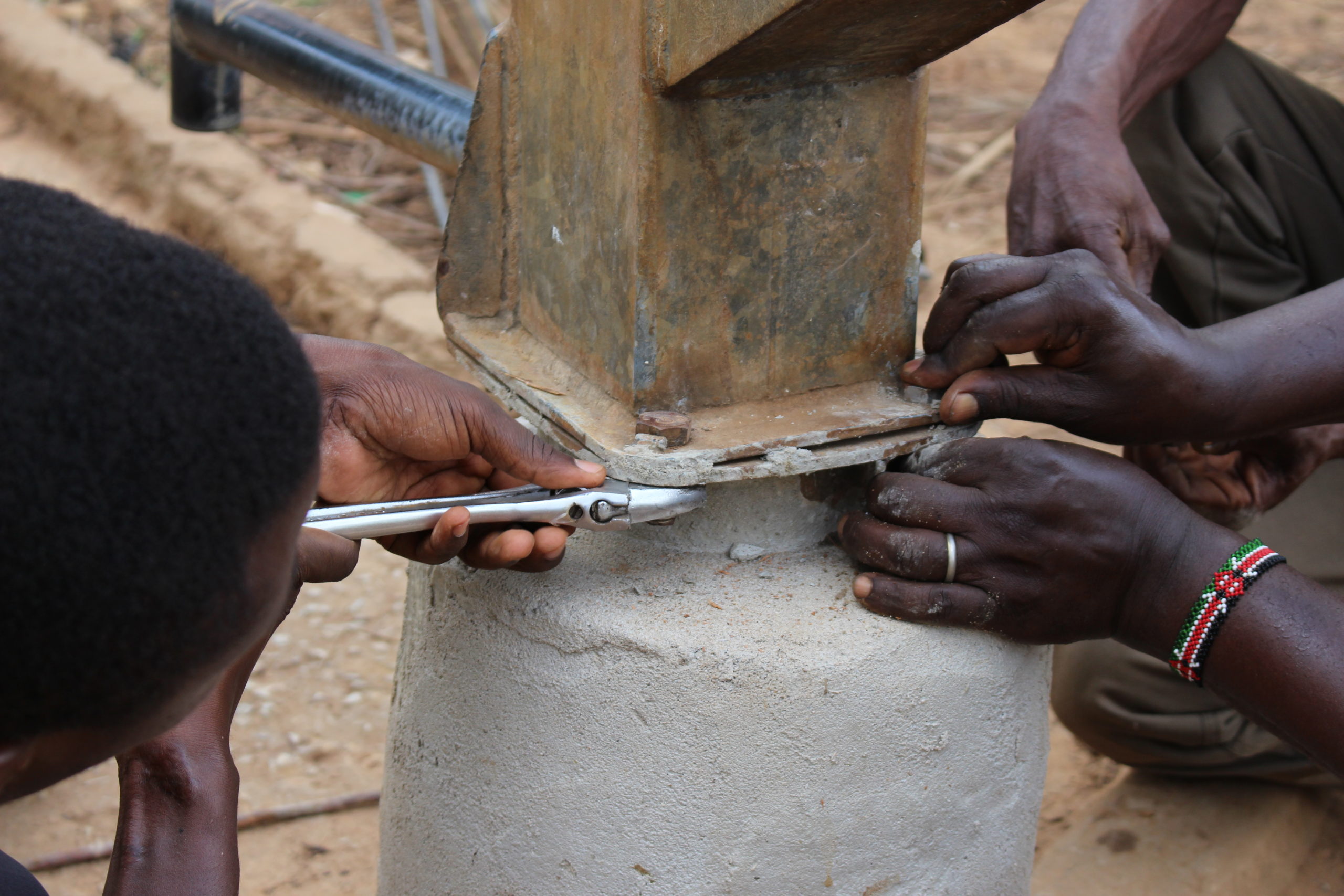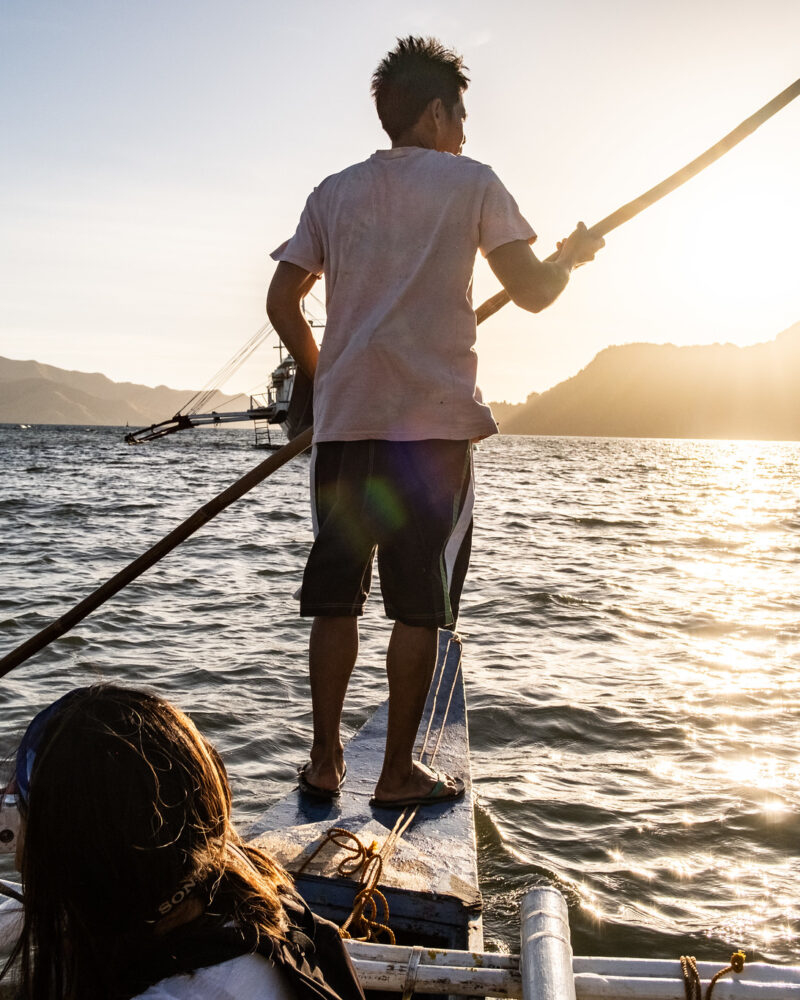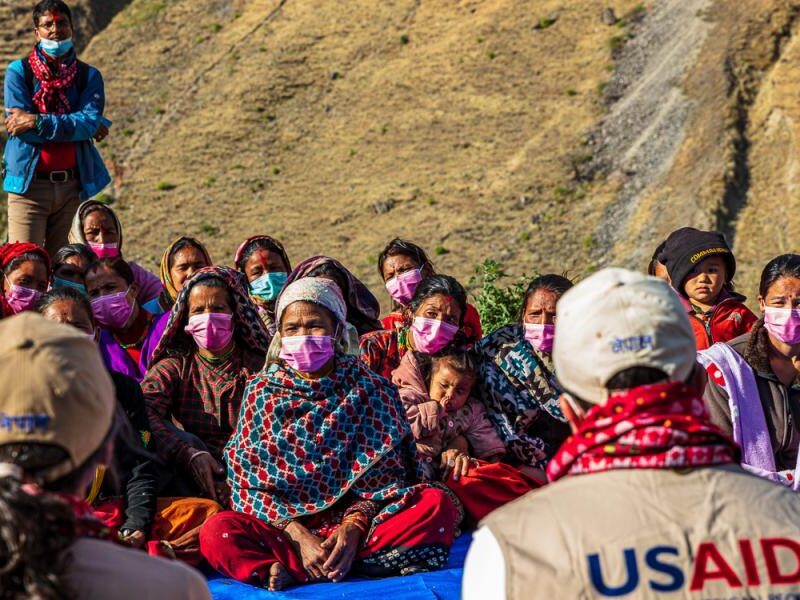In 2016 a global consortium of eight organizations representing academia, the private sector, and development spheres joined together to identify locally driven solutions to the challenge of developing robust local systems capable of sustaining water, sanitation, and hygiene (WASH) service delivery. Members of the USAID–funded Sustainable WASH Systems Learning Partnership (SWS) — Environmental Incentives (EI), IRC, LINC, Oxford University, Tetra Tech, the University of Colorado Boulder, WaterSHED, and Whave Solutions — have spent the past 5 years testing new ideas, approaches, and tools to strengthen local WASH systems in four countries.
Providing both technical and leadership support to SWS and hosting the recent 5-day closeout event and learning series, EI learned valuable lessons about operating in the context of a learning collaborative.
Below we share five lessons that have shaped our work and explain how we adapted as we learned.
1. Walk the Talk
Ideally, pause and reflect practices should be embedded into the regular rhythms of a project to ensure uptake. EI discovered that the need for learning and adaptive management increases in highly dynamic and uncertain contexts.
EI facilitated a set of structured learning activities to create space for reflection and ensure analysis and synthesis of emergent learning themes at key junctures:
- Systematic Review Session: Researchers and monitoring, evaluation, and learning specialists met once a year to analyze and synthesize all available data and evidence. This helped the team understand how combined findings create meaning and identify emergent areas of learning, as well as themes or lessons for further investigation.
- Pause and Learn Events: Country teams reflected on learning from implementation experience and reviewed progress toward answering learning questions.
- Annual Team Meeting: The entire consortium came together for peer sharing and collaboration across teams, to review progress against the SWS theory of change and learning agenda, and to take stock of new evidence and changing contexts.
In addition to the annual learning events, SWS created space for reflection through semi-structured interviews with project teams as part of the semi-annual reporting process.
2. Monitor what Matters
You can’t – and shouldn’t – monitor everything. Through our monitoring tools, we learned the value of capturing incremental progress, in lieu of systemic change. Systems change is a long-term process with slow-moving variables. By tracking incremental progress, project teams captured emergent patterns of behavior and analyzed small contributions along the way and, most importantly, used that information to adapt their approaches.
EI worked with partners to build a complexity-aware monitoring approach to measure changes in local WASH systems, using two primary methods:
- Outcome Mapping: To track progress in influencing the behaviors and actions of direct partners on the project.
- Sustainability Scorecards: To measure the status of financial, institutional, environmental, technological, and social components of the system that are expected to influence sustainability.
SWS selected these methods for their complementarity. The scorecards provide an annual high-level assessment of critical factors that contribute to sustainable service delivery, while outcome mapping allows for the ongoing monitoring of changes in the behaviors and relationships of actors in the system.*
*For more details on the methodologies of both tools, how SWS applied them, and a summary of lessons learned and general reflections on measuring systems change read this report.
3. Share, so Decision-Makers Have the Information They Need
The creation of evidence at each step is fundamental to a learning partnership. SWS built on EI’s experience in scaling and accelerating learning about what works so that USAID, national governments, and other sector actors could access the findings and apply them to increase the sustainability of both sectoral programming and subsequent WASH service delivery. Toward that end SWS published more than 70 reports, guides, videos, games, and journal articles and hosted and/or participated in more than 200 learning activities. The legacy is a more robust evidence base about systems approaches in the WASH sector, which the project has enshrined in a series of flagship resources and shared and discussed broadly through learning events. Through rich panel discussions and conversations generated during breakout sessions, lively chat exchanges, and the Q&A, SWS’s recent closeout series provided a path forward to putting its research into action.
4. Discover What Drives Collaboration
While no cut-and-paste strategies exist for collective action approaches due to their complexity and sensitivity to local conditions, there is a wide experience base to draw on, and clear lessons from the SWS cases should be of use to anyone designing or implementing collaborative systems approaches.
In the WASH sector, collective action approaches are increasingly being applied to challenges related to the sustainability of WASH services. However, these under-studied approaches lack evidence and guidance on conditions that contribute to their success. EI led research on collective action approaches applied under SWS, contributing to the evidence base for WASH sector. SWS research focused on: defining collective action approaches, investigating the factors that drive their progress, and identifying resource requirements.
Among the key findings:
- Collective problem identification is not always required for progress. Rather, risks are associated with each starting point, and the research team observed less progress on outcomes when stakeholders failed to recognize or mitigate these risks.
- A hub is the entity that manages the logistics, facilitation, leadership, and administrative functions of a coalition. SWS found a hub’s convening power and administrative capacity are the two most critical factors for effectiveness.
- Government support of collective action is critical and requires continual engagement with government actors.
5. Find Strength in Partnership
Everyone’s voice matters. In 2016 EI joined a consortium of partners with a wide range of expertise and experience to co-create and collaborate. USAID, the SWS team, and most importantly its in-country partners in Cambodia, Ethiopia, Kenya, and Uganda collaborated to understand local systems and overcome barriers for improving WASH service sustainability. To be successful, we had to build a community of learning and develop trusting relationships within and across the diverse set of teams in the partnership.
How it worked:
- Our consortium hailed from academia, on-the-ground implementers, nonprofits, and international development organizations, which forced us to broaden our thinking and consider each other’s approaches more directly and thoroughly.
- We came together regularly (see Lesson #1). SWS learned the value of fostering trusting relationships that had been built in person during the initial project years when the pandemic forced the project to pivot its sharing and engagement to the virtual realm.
- The consortium organized into concept teams and cross-concept teams. This allowed us to work toward a common approach within different contexts, while sharing larger takeaways.
Our different perspectives helped us find better solutions. A project with eight partners could be unwieldy, but we were all committed to real change.
For more lessons on SWS’s 5 years of research and evidence gathered through the partnership and how SWS moved the needle on systems-thinking methods, tune into recordings of the SWS Closeout Event and Learning Series available on Globalwaters.org.



